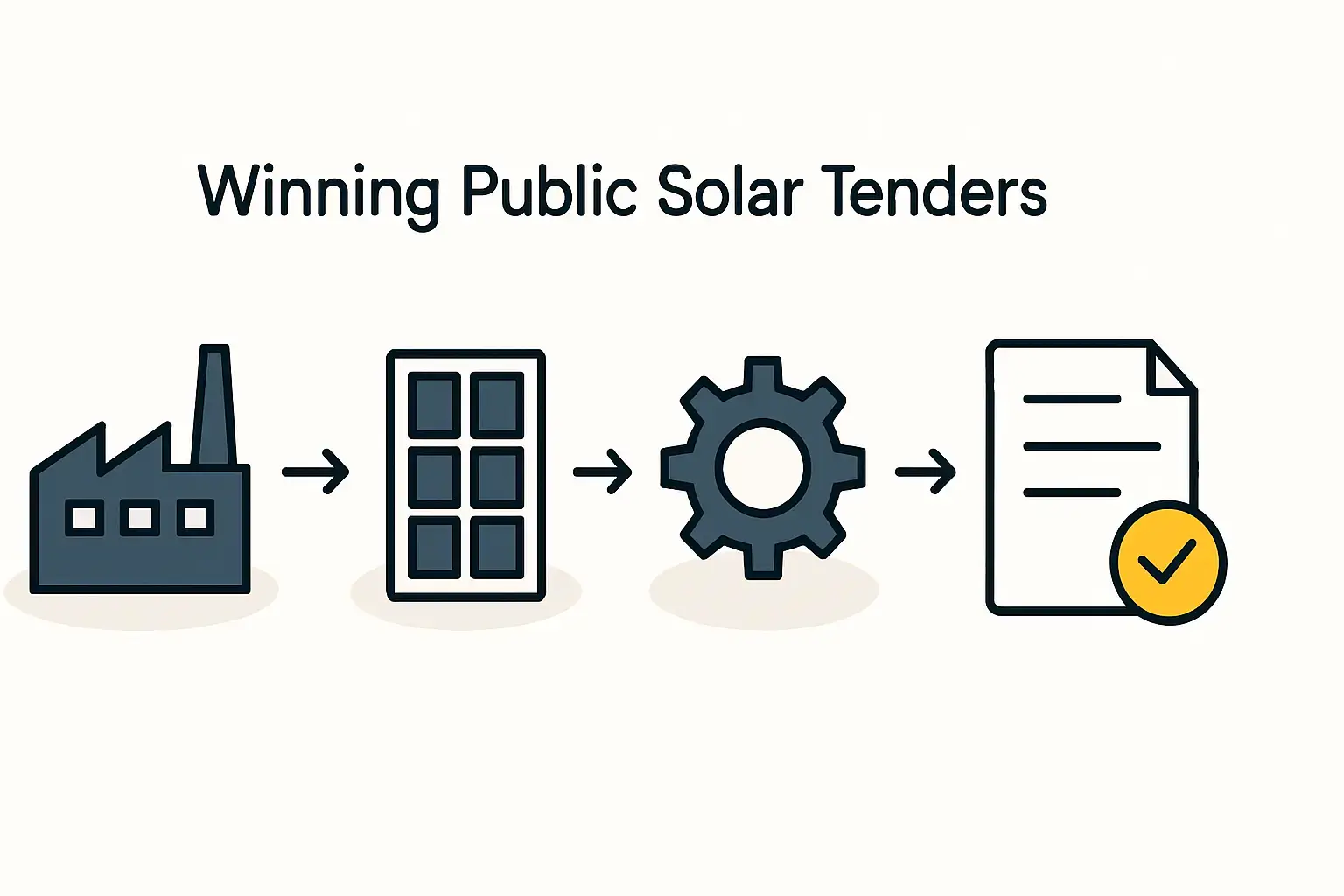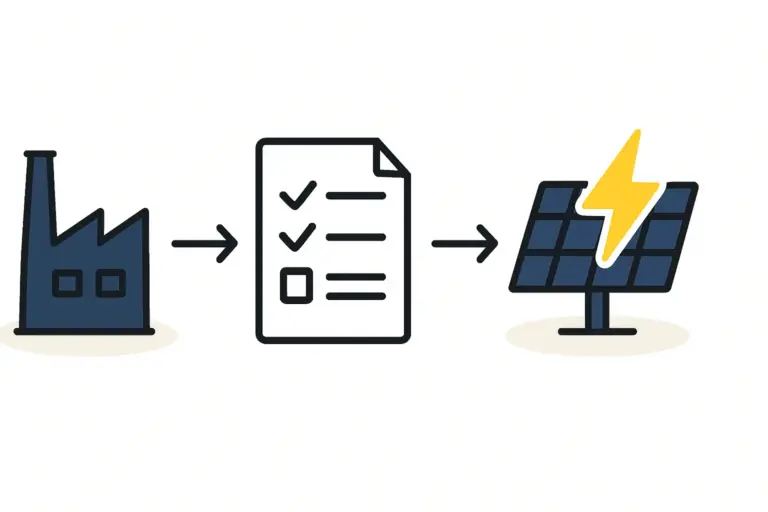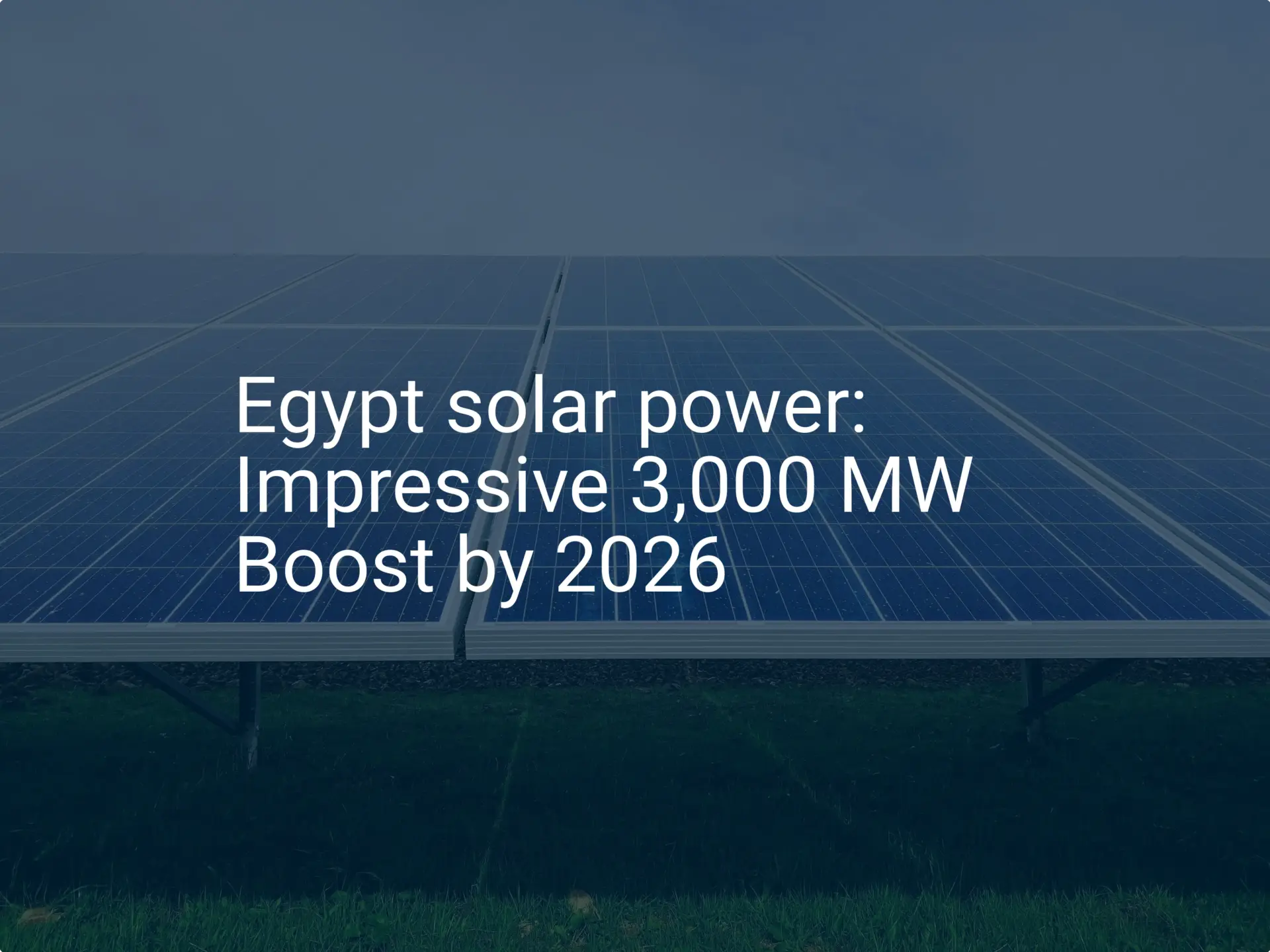Many entrepreneurs entering the solar manufacturing sector believe their primary challenge is procuring the right machinery. While equipment is a significant capital investment, long-term success often hinges on a less tangible asset: a skilled and reliable technical workforce. A state-of-the-art production line is only as effective as the team that operates, maintains, and optimizes it.
This guide outlines a strategic framework for sourcing, training, and retaining a high-performing technical team for a solar module factory in Egypt. It shows how to leverage the country’s unique advantages and apply international best practices to build a foundation for quality and growth.
Understanding the Egyptian Labor Landscape for Solar Manufacturing
Egypt presents a compelling environment for establishing a solar manufacturing business, driven by strong government initiatives and a growing pool of talent.
The National Opportunity: Egypt’s Vision 2030
The Egyptian government’s Vision 2030 sets an ambitious target of generating 42% of the country’s electricity from renewable sources by 2030. This national commitment creates stable, long-term demand for locally produced solar components and fosters a supportive regulatory environment for manufacturers.
The Talent Pool: The Benban Effect
The development of the Benban Solar Park, one of the world’s largest, has had a profound impact on the local labor market. This massive undertaking has created a significant cohort of engineers, technicians, and project managers with direct experience in large-scale solar projects. This existing talent pool is a valuable resource for new manufacturing ventures, offering access to individuals already familiar with the industry’s technical and safety standards.
The Challenge: Bridging the Skills Gap
While Egypt has a strong network of universities and Technical and Vocational Education and Training (TVET) institutions, a common challenge is the gap between academic knowledge and the practical, hands-on skills required in a modern factory. Many graduates possess a solid engineering foundation but lack specific experience with the precision machinery and quality control protocols essential to solar module manufacturing. A successful workforce strategy must address this gap directly through structured, in-house training.
A Strategic Framework for Building Your Technical Team
A haphazard approach to hiring and training can lead to high defect rates, low efficiency, and costly employee turnover. Following a structured framework focused on three key phases can help turn your workforce into a competitive advantage.
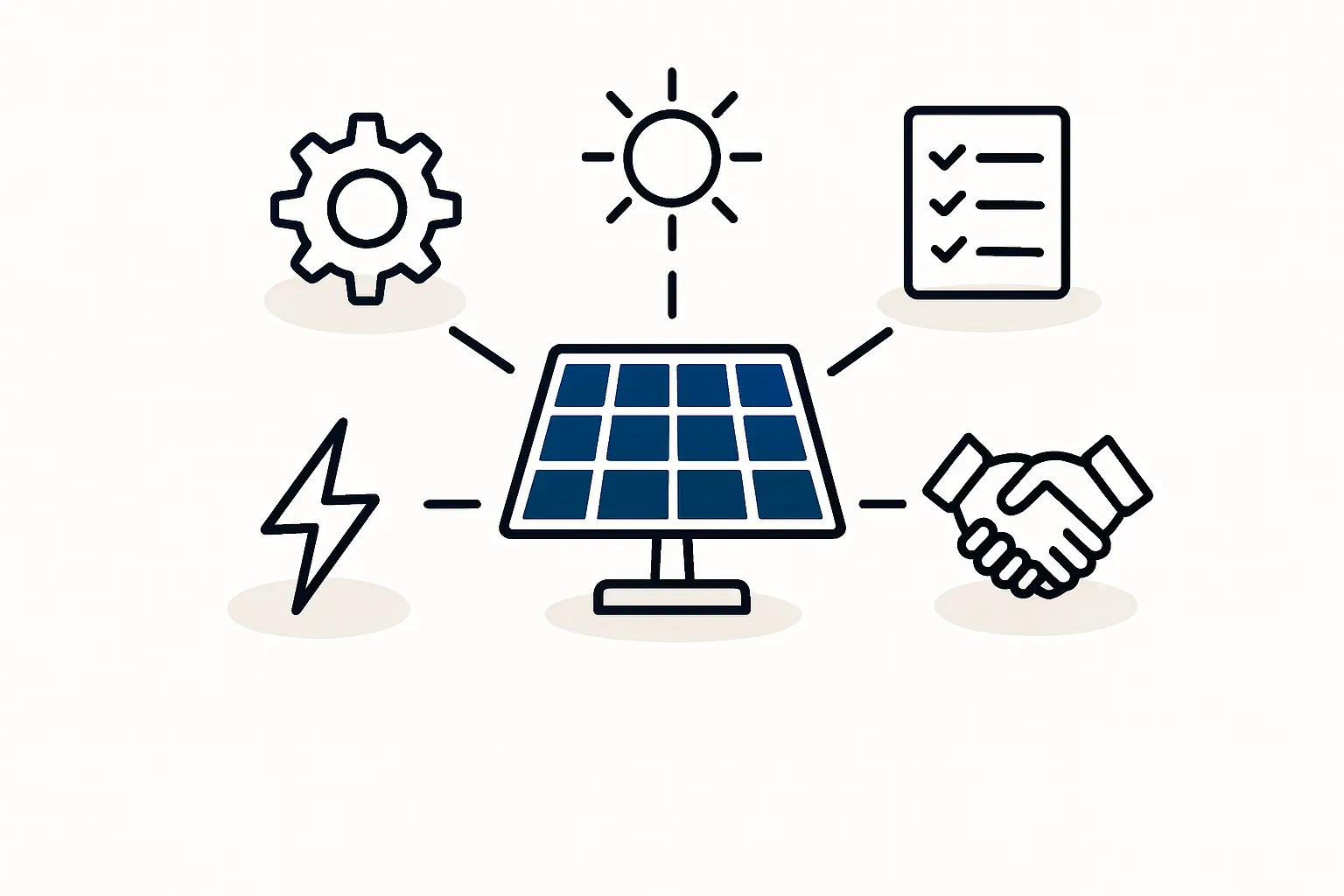
Phase 1: Strategic Recruitment and Sourcing
The goal is not simply to hire individuals with prior solar experience but to identify candidates with the right aptitude and foundational skills.
Where to Find Talent: A multi-channel approach yields the best results.
- Experienced Professionals: Target technicians and engineers from the Benban Solar Park or other established renewable energy companies in Egypt.
- Emerging Talent: Connect with career services at leading Egyptian technical universities and TVET centers to recruit promising graduates.
- Cross-Industry Skills: Look for candidates from related industries such as electronics assembly, automotive manufacturing, or pharmaceuticals. These individuals often possess valuable experience in cleanroom protocols, quality control, and process-driven work.
What to Look For: Prioritize core competencies over specific solar knowledge. The ideal candidate demonstrates a strong mechanical or electrical aptitude, meticulous attention to detail, a problem-solving mindset, and the ability to work systematically. These traits are harder to teach than the specific steps of operating a solar laminator or stringer machine.
Phase 2: Implementing a German-Standard Training Program
A robust training program is the most critical investment you can make in your team. By adapting proven models, such as the German dual education system, you can rapidly build a highly competent workforce. This approach blends theoretical knowledge with practical, on-the-job application.
Foundational Training: Before any employee touches a machine, they should complete a foundational course covering:
- Workplace Safety: Protocols for electrical safety, material handling, and emergency procedures.
- Quality Control Principles: Understanding the cost of defects, the importance of material traceability, and the fundamentals of ISO 9001.
- The Manufacturing Process: An overview of the entire production line, so each team member understands how their role impacts the final product.
Specialized, Machine-Specific Training: This phase involves hands-on instruction for specific roles, such as Stringer Operator, Layup Technician, Laminator Operator, and Quality Inspector. The training should be delivered by experienced engineers, often those provided by the equipment supplier as part of a turnkey production line package.
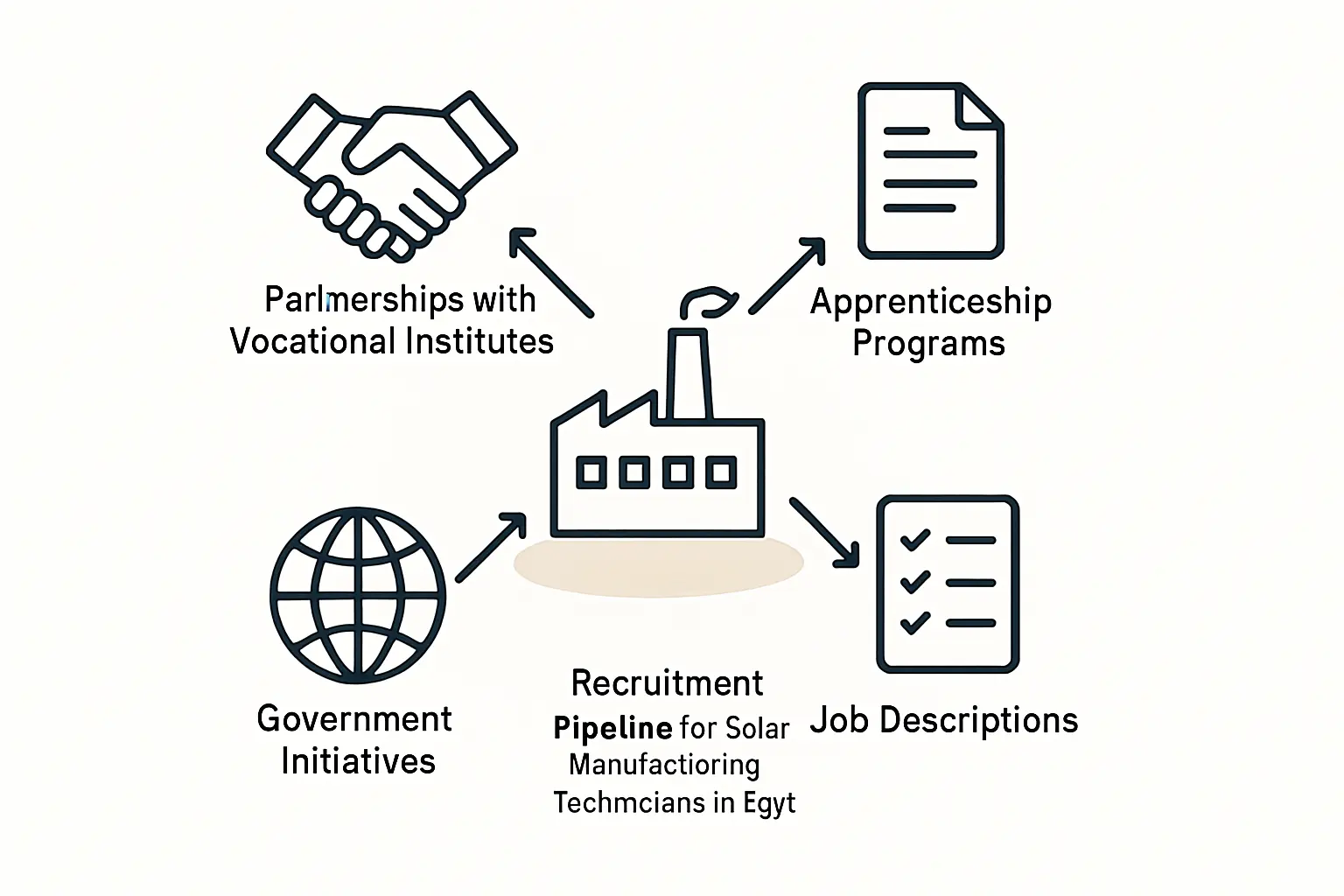
Phase 3: Retention and Continuous Development
Hiring and training are only the beginning. In a rapidly evolving industry, retaining talent and keeping their skills current is essential for long-term competitiveness.
- Create Career Pathways: Define clear opportunities for advancement. A machine operator could progress to team leader, then shift supervisor, and eventually production manager. This structure motivates employees and reduces turnover.
- Invest in Ongoing Education: As new cell technologies (e.g., TOPCon, HJT) and materials emerge, provide refresher courses and updated training modules. This ensures the team can adapt to process changes without compromising quality.
- Foster a Culture of Quality: Encourage employees to identify and report potential process improvements. When the team takes ownership of quality, the entire operation benefits.
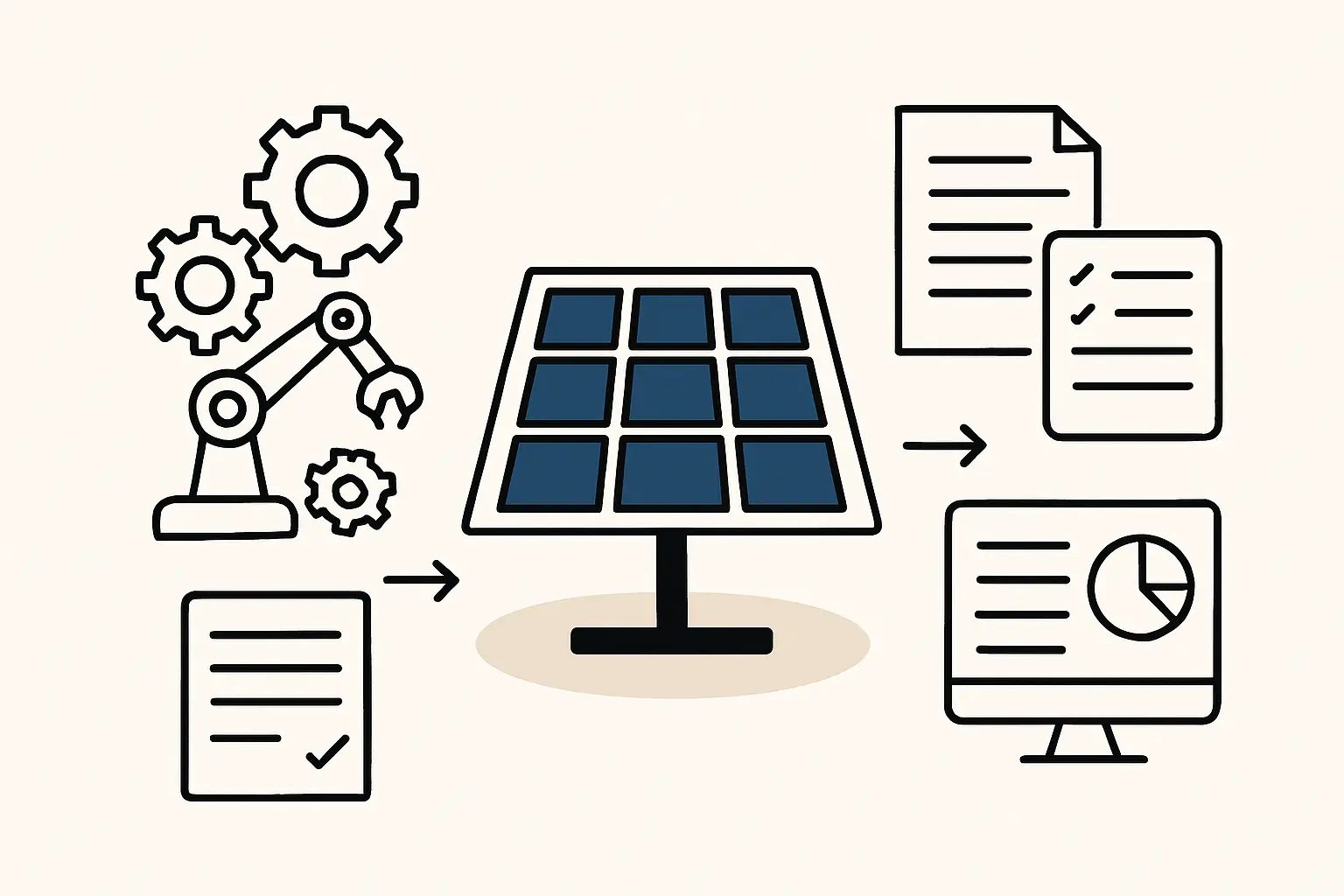
Navigating Egyptian Labor Law and Regulations
Compliance with local labor laws is non-negotiable when operating in Egypt. While this is not a substitute for professional legal advice, entrepreneurs should be aware of several key areas:
- Employment Contracts: All employment relationships should be formalized with a written contract in Arabic. The contract must specify the role, salary, duration, and other key terms of employment.
- Working Hours: The standard legal working week is 48 hours, typically spread over six days. Regulations for overtime pay must be strictly followed.
- Social Insurance: Employers are legally required to register employees with the National Authority for Social Insurance and make monthly contributions.
Engaging a reputable local law firm during the business planning stage is a crucial step to ensure full compliance. This should be considered a standard part of the overall solar factory investment plan.
Frequently Asked Questions (FAQ)
-
How many employees are needed for a small-scale (20-50 MW) solar factory?
For a semi-automated production line in this range, a typical workforce is about 25 to 40 employees. This includes production operators, technicians, quality control inspectors, and a small administrative and management team. -
What is the typical duration for a comprehensive training program?
An intensive training program for a new team typically lasts four to six weeks. This includes classroom instruction and hands-on practice before the official start of production. -
Is prior experience in solar manufacturing essential for all technical staff?
No. For operator-level positions, it’s more important to hire for aptitude, attention to detail, and a good work ethic. Foundational technical skills from other manufacturing sectors are highly transferable. Key leadership roles, such as Production Manager or Head of Quality, will benefit more from direct industry experience. -
How does a structured training program impact product quality and certification?
A well-trained workforce is fundamental to achieving consistent product quality. Standardized training ensures that all operators follow the same procedures, which dramatically reduces process variability and defect rates. This consistency is a prerequisite for passing the rigorous audits required for international certifications like IEC 61215 and IEC 61730.
Conclusion: Your Workforce as a Cornerstone of Success
While advanced machinery is a visible symbol of a modern factory, the true engine of a successful solar manufacturing operation is its people. By implementing a strategic approach to recruitment, adopting world-class training standards, and fostering a culture of continuous improvement, you can build a workforce that is not just a cost center, but a genuine competitive advantage. This investment in human capital is what transforms a collection of machines into a high-quality, profitable, and sustainable enterprise.



